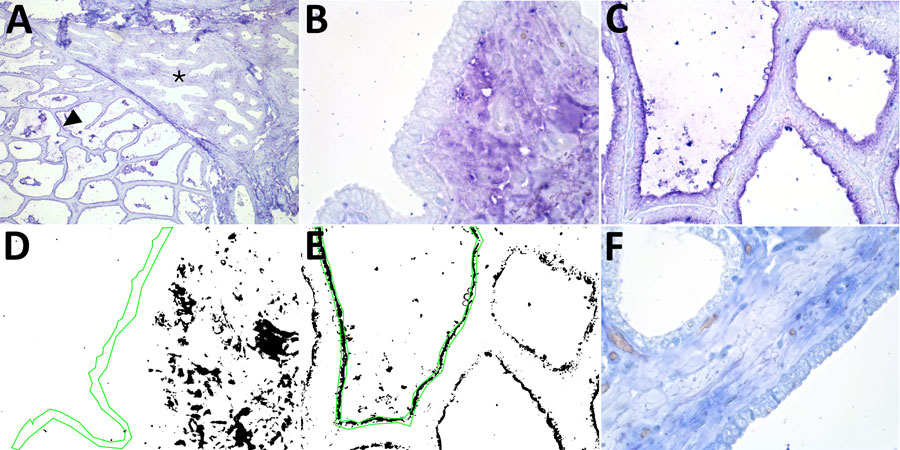Volume 30, Number 9—September 2024
Dispatch
Avian and Human Influenza A Virus Receptors in Bovine Mammary Gland
Figure 2

Figure 2. Results of staining showing wide expression of the duck receptor for influenza A virus (designated MAA-II) in the alveoli of the bovine mammary gland. A) An example of the MAA-II staining of a mammary gland from a cow in late lactation. Arrowhead indicates expression of the duck receptor in active alveoli. Asterisks indicate less staining in the less active alveoli. Original magnification ×10. B, C) MAA-II staining of a duct (B) and an alveolus (C) in a 3-year-old cow. Original magnification ×60. D, E) Positive staining obtained from the image analysis. Green line shows the region of interest. Original magnification ×60. F) A neuraminidase pretreatment negative control showed markedly reduced staining of the MAA-II lectin in the alveolus but some nonspecific staining in the duct epithelium. The staining was visualized using Vector Blue (Vector Laboratories, https://vectorlabs.com). Original magnification ×60.